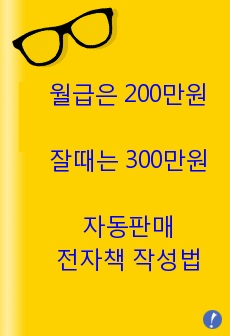생애경로와 이행이 초등교사의 직업정체성 연구에 갖는 의미
*형*
다운로드
장바구니
* 본 문서(hwp)가 작성된 한글 프로그램 버전보다 낮은 한글 프로그램에서 열람할 경우 문서가 올바르게 표시되지 않을 수 있습니다. 이 경우에는 최신패치가 되어 있는 2010 이상 버전이나 한글뷰어에서 확인해 주시기 바랍니다.
목차
Ⅰ. 들어가며Ⅱ. 초등교사 직업정체성에 대한 생애경로 관점의 필요성
가. 초등교사의 다중정체성(multiple identity)
나. 초등교사의 행위자성(agency)
다. 초등교사의 직업정체성을 둘러싼 구조
Ⅲ. 초등교사의 직업정체성에 대한 이행 관점의 설명가능성
가. 이행이 갖는 직업정체성(job identity) 학습과의 연관성
나. 이행의 행위자성(agency)
다. 이행을 둘러싼 사회적 구조(structure)
Ⅳ. 초등교사의 평생학습과 생애경로 및 이행
Ⅴ. 나가며
Ⅵ. 참고문헌
본문내용
교사의 직업정체성은 그 자신의 삶뿐만 아니라, 학생들의 교육과 삶에도 직접적인 영향을 끼친다(권진옥·오진아·김은하·한대동, 2015). 교사의 직업정체성은 교사의 성향을 형성하고, 어디에 노력을 기울일지, 직업적 발달의 기회를 추구할지 여부와 어떻게 추구할지를 결정하기 때문이다(Hammerness, Darling-Hammond, & Bransford, 2005). 나아가서 직업정체성은 교사의 직업적 성공, 사회적 적응, 심리적 웰빙(well-being)등에 중요한 영향을 미친다(Skorikov & Vondracek, 2011). 때문에 교사의 직업정체성 발달은 전문성 있는 교사가 되어가는 과정에 관한 이론적 틀로 사용되고 있으며, 교사교육에서 중요한 구인 중 하나로 연구되고 있다(Burn, 2007; Luehmann, 2007; Smith & Southerland, 2007).한편 Wenger(1998 : 149)는 정체성이 특정 공동체에 참여하면서 갖게 되는 생생한 경험을 통해 형성된다고 보았다. 초등교사 또한 공동체의 한 구성원으로, 직업에서의 많은 경험을 통해 정체성을 형성해 나갈 것이다. 여기에서 주목할 부분은, 정체성 형성에 관여하는 수많은 경험들이, 교사의 직업 생애 전반에 걸쳐 지속적으로 발생한다는 것이다. 따라서 류태호(2000)가 주장하는 바와 같이, 초등교사의 직업정체성이 형성되어가는 과정은 교사 생애 전체의 관점에 비추어 연구되어야 한다. 그러나 많은 연구들은 교사의 직업발달에서 이 직업정체성의 문제를 간과하거나, 특정 시기에 국한하여 바라보는 것으로 축소하였다(김병찬, 2004; 박상완, 2007). 이는 교사가 갖는 직업정체성의 특성을 다각적으로 파악하는 데 어려움으로 작용한다.
따라서 본 보고서는 교사의 직업정체성을 이해하는 관점으로 Life course(생애경로)를 제시하고자 한다. Holstein et al(2000 : 7)은 생애경로를 개인적 경험이 생애에 걸쳐 획득한 의미를 해석하는 작업의 결과로 본다. 생애경로는 나이가 들어가면서 인간이 만드는 삶의 흔적을 드러내고, 경험에 대한 의미에 집중한다.
참고 자료
Akkerman, S. F., &Meijer, P. C. (2011). A dialogical approach to conceptualizing teacher identity. Teaching and Teacher Education, 27(2), 208-319.Alsup, J. (2006). Teacher identity discourses: Negotiating personal and professional spaces. Routledge.
Bernstein, D. (2013). Essentials of psychology. Cengage Learning.
Brim, Orville G., Jr., and Stanton Wheeler. 1966. Socialization after Childhood: Two Essays. New York: Wiley.
Buckley, C., &Fielding, S. (2007, June). Building bridges for lifelong learning. In Researching transitions in lifelong learning Conference, University of Stirling (pp. 22-24).
Burn, K. (2007). Professional knowledge and identity in a contested discipline: challenges for student teachers and teacher educators. Oxford Review of Education, 33(4), 445-467.
Day, C. (1993). Reflection: a necessary but not sufficient condition for professional development. British educational research journal, 19(1), 83-93.
Ecclestone, K. (2010). Lost and found in transition. Researching transitions in lifelong learning, 1-27.
Ecclestone, K., Biesta, G., &Hughes, M. (Eds.). (2009). Transitions and learning through the lifecourse. Routledge.
Elder Jr, G. H. (1994). Time, human agency, and social change: Perspectives on the life course. Social psychology quarterly, 4-15.
Elder Jr, G. H., Johnson, M. K., &Crosnoe, R. (2003). The emergence and development of life course theory. In Handbook of the life course (pp. 3-19). Springer US.
Feiman-Nemser, S., Cochran-Smith, M., & McIntyre, D. J. (Eds.). (2008). Handbook of Research in Teacher Education: Enduring Questions in Changing Contexts. Routledge.
Gee, J. P. (2000). Identity as an analytic lens for research in education. Review of Research in Education, 25, 99-125.
George, L. K. (1993). Sociological perspectives on life transitions. Annual review of sociology, 19(1), 353-373.
Giddens, A. (1979). Central problems in social theory: Action, structure, and contradiction in social analysis (Vol. 241). Univ of California Press.
Goffman, E. (1959). The moral career of the mental patient. Psychiatry, 22(2), 123-142.
Hammerness, K., Darling-Hammond, L., &Bransford, J. (2005). How teachers learn and develop.
Hogg, M. A., &Turner, J. C. (1987). Intergroup behaviour, self‐stereotyping and the salience of social categories. British Journal of Social Psychology, 26(4), 325-340.
Holestein, J. A., &Gubrium, J. F.(2000). Constructing the life course. DixHills, N. Y.: General Hall.
Ibarra, H. (1999). Provisional selves: Experimenting with image and identity in professional adaptation. Administrative science quarterly, 44(4), 764-791.
Kirkpatrick Johnson, M., Allen Berg, J., &Sirotzki, T. (2007). Differentiation in self-perceived adulthood: Extending the confluence model of subjective age identity. Social Psychology Quarterly, 70(3), 243-261.
Lawrence, J. (2009). Two conceptual models for facilitating learners' transitions to new post-school learning contexts. In J. Field, J. Gallacher &R. Ingram (Eds.),Researching transitions in lifelong learning(pp. 106-120). New York, NY: Routledge.
Leary, M. R., &Kowalski, R. M. (1990). Impression management: A literature review and two-component model. Psychological bulletin, 107(1), 34.
Ligorio, M. B. (2010). Dialogical relationship between identity and learning. Culture &Psychology, 16(1), 93-107.
Luehmann, A. L. (2007). Identity development as a lens to science teacher preparation. Science Education, 91(5), 822-839.
Macmillan, R. (2006). ‘Constructing Adulthood’: Agency and Subjectivity in the Transition to Adulthood. Advances in Life Course Research, 11, 3-29.
Madden, L., &Wiebe, E. (2015). Multiple perspectives on elementary teachers’ science identities: A case study. International Journal of Science Education, 37(3), 391-410.
McCall, G. J., &Simmons, J. L. (1978). Identities and interactions: An examination of human associations in everyday life (Rev. ed.). New York, ao.
Mead, G. H. (1934). Mind, self and society (Vol. 111). University of Chicago Press.: Chicago.
Merelman, R. M. (1986). Revitalizing political socialization. Political psychology, 279-319.
Moore, F. M. (2008). Positional identity and science teacher professional development. Journal of Research in Science Teaching, 45(6), 684–710.
O’Connor, K. E. (2008). “You choose to care”: Teachers, emotions and professional identity. Teaching and teacher education, 24(1), 117-126.
Pallas, A. M. (2003). Educational transitions, trajectories, and pathways. Handbook of the life course, 165-184.
Pratt, M. G., Rockmann, K. W., &Kaufmann, J. B. (2006). Constructing professional identity: The role of work and identity learning cycles in the customization of identity among medical residents. Academy of management journal, 49(2), 235-262.
Quinn, J. (2010). Rethinking ‘failed transitions’ to higher education. Transitions and learning through the life course, 118-129.
Robins, L. N. (1966). Deviant children grown up, A Sociological and Psychiatric study of Sociopathic Personality.
Skorikov, V. B., &Vondracek, F. W. (2011). Occupational identity. In Handbook of identity theory and research (pp. 693-714). Springer New York.
Slavin, R. E., &Davis, N. (2006). Educational psychology: Theory and practice.
Smith, L. K., &Southerland, S. A. (2007). Reforming practice or modifying reforms?: Elementary teachers' response to the tools of reform. Journal of Research in science Teaching, 44(3), 396-423.
Stryker, S., &Burke, P. J. (2000). The past, present, and future of an identity theory. Social psychology quarterly, 284-297.
Volkmann, M. J., &Anderson, M. A. (1998). Creating professional identity: Dilemmas and metaphors of a first-year chemistry teacher.
Wenger, E. (1998). Communities of practice: Learning, meaning, and identity. Cambridge university press.
Zembylas, M. (2003). Emotions and teacher identity: A poststructural perspective. Teachers and Teaching, 9(3), 213-238.
강대중. (2015). Life and learning of Korean artists and craftsmen : Rhizoactivity / Dae Joong Kang. (Routledge research in lifelong learning and adult education). Abingdon, Oxon ; New York, NY: Routledge.
권미경, &김천기. (2015). 교사의 관점에서 본 학부모의 소비자 주권적 태도와 그에 따른 교사의 위축 및 정체성변화. 교육종합연구, 13(3), 83-109.
권진옥, 오진아, 김은하, &한대동. (2015). 초등학교 보건교사의 직업정체성: 근거이론적 접근. Child Health Nursing Research, 21(1), 64-73.
김석례, &손민호. (2011). 초등교원의 전문성 신장에 대한 생애사적 접근. 교육문화연구, 17(1), 163-194.
김한별. (2008). 초임교사의 학교문화 적응과정에서의 학습경험 이해. 평생교육학연구, 14, 21-49.
류태호. (2000). 체육교사의 직업정체성 형성요인 분석. 한국체육학회지, 39(3), 725-739.
양은주. (2007). 교사를 일깨우는 사유. 서울: 문음사.
이경희, &박성희. (2006). 평생학습의 새로운 패러다임으로서의 생애사 연구. 평생교육학연구, 12(3), 73-95.
이동성. (2015). 두 초등학교 남자 교원의 경력 경로 및 경력 발달에 대한 생애사 연구:“우연과 필연의 이중주”. 교사교육연구, 54(1), 102-119.
이두휴. (2005). 일반학교 특수학급에 배치된 초임 특수교사의 교직사회화 과정 연구. 교육사회학연구, 15, 205-237.
정금현, &장홍재. (2005). 성장단계에 있는 교사의 지식학습과정에 대한 생애사적 접근. 한국교원교육연구, 22(1), 177-197.
정정훈, &김영천. (2005). 초등학교 초임교사의 전문성 발달과 딜레마에 관한 사례 연구. 열린교육연구, 13(2), 71-100.



























